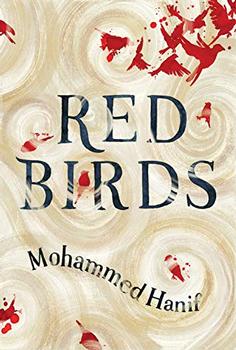Summary | Excerpt | Reviews | Beyond the book | Read-Alikes | Genres & Themes | Author Bio

When you're a refugee, everyone has lost, at least for the time being... And the journey beyond those invisible lines can become just as heinous as living inside the fire.
– Atia Abawi, A Land of Permanent Goodbyes
As quality young adult fiction continues to be published, it is not often that a book distinguishes itself as required reading, but Atia Abawi's A Land of Permanent Goodbyes should be classed as such, not just for young adults but readers of all ages. Abawi's narrative traces the harrowing experiences of refugees fleeing Syria, putting a voice to the images of tragedy that flooded western media for a time before other news took their place.
The narrative follows Tareq's journey from Syria after his home is bombed and he loses the majority of his family, and as he looks for a place of refuge in Europe, anywhere that might be able to maybe one day feel like home. Though many books try to create space where readers will empathize with loss, this one brings every sense into play to bring it to life. And though we might not want to look, to feel the dust of crumpled buildings, the gnaw of hunger, the outrage of being treated as less than human, because we experience the world through Tareq's very tactile and emotionally grounded perception, we cannot look away.
While his direct journey offers one particular insight, the people Tareq meets along the way also point to how extensive and multifaceted the refugee crisis has become. This book does not allow the reader to hold any pretentions of glory regarding western actions in the Middle East over the past couple decades. Layers of repeating history, the range of the diaspora and the places people are desperate to escape, as well as the news headlines woven into the narrative add an inescapable element of realism that brings the reality of living in a state of global crisis and disenfranchisement home to the reader.
Abawi also incorporates the voice of Alexia, an American student volunteering to help refugees on the island of Lesvos, Greece. Through this character the author voices some sheltered and, perhaps, naïve impressions that are in many ways indicative of the western view of how to address this issue. While I think the split narrative is effective and adds to the feeling of simultaneous global and local actors affected by this crisis, I question if it is necessary to center on a western viewpoint at all, and wonder what the effect would have been if someone of a different background had provided the aid worker perspective. However, Abawi also uses Alexia as a way to criticize the trend of voluntourism, and to criticize global responses to crisis in terms of what outsiders think is needed to help, and what is actually needed locally.
I also question if the political construction of Sivan and Mariam working together as volunteers from two different sides of the Israeli-Palestinian conflict is necessary. While it helps to frame some of the discourse about the intricacies of cultural differences and even language disparities in a part of the world that western media tends to paint in broad brushstrokes, it seems like a distraction from the narrative about the Syrian refugee crisis and a very heavy rhetorical move where the author subsumes the narrator.
Also, a very strong didactic tone running through the narrator's commentary runs the risk of losing the reader. Framed as the voice of Destiny, it feels a bit too much like the insertion of the author's editorializing within the text itself. However, the commentary is absolutely necessary - the broad statements made about what makes nations great and what makes a people great need to be said because, as can be seen from the headlines that mirror Tareq's journey, these are no longer truths that can be taken for granted.
Overall the criticisms I have of the text are not things that distract or detract from both the value and the necessity of this book - in this time, in this culture, at this point in history. The true strength of Abawi's prose comes from her background as a journalist. She grounds the narrative in the day to day lives of her characters while simultaneously balancing the omniscient narration through Destiny, providing scope and detail that will allow the reader to feel an immediacy while also understanding how this family's story fits within a greater historical context. Abawi manages to bring to human scale a pain too great and an experience that should never be known by anyone, but is known too well, by too many.
![]() This review was originally published in The BookBrowse Review in March 2018, and has been updated for the
January 2019 edition.
Click here to go to this issue.
This review was originally published in The BookBrowse Review in March 2018, and has been updated for the
January 2019 edition.
Click here to go to this issue.

If you liked A Land of Permanent Goodbyes, try these:

by Kelly Loy Gilbert
Published 2019
Danny Cheng has always known his parents have secrets. But when he discovers a taped-up box in his father's closet filled with old letters and a file on a powerful Silicon Valley family, he realizes there's much more to his family's past than he ever imagined.

by Mohammed Hanif
Published 2019
A powerful novel about war, family and love, from the bestselling, prize-winning author dubbed 'Pakistan's brightest voice.' (Guardian)
Your guide toexceptional books
BookBrowse seeks out and recommends the best in contemporary fiction and nonfiction—books that not only engage and entertain but also deepen our understanding of ourselves and the world around us.